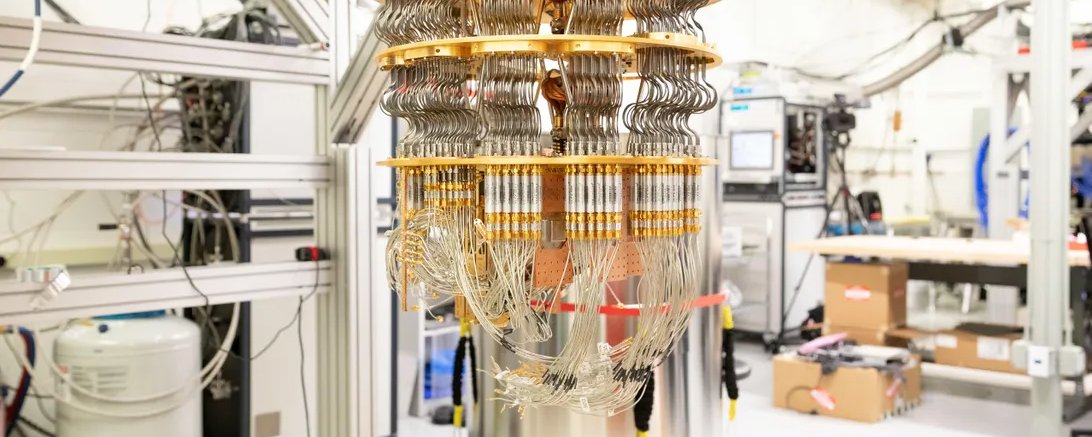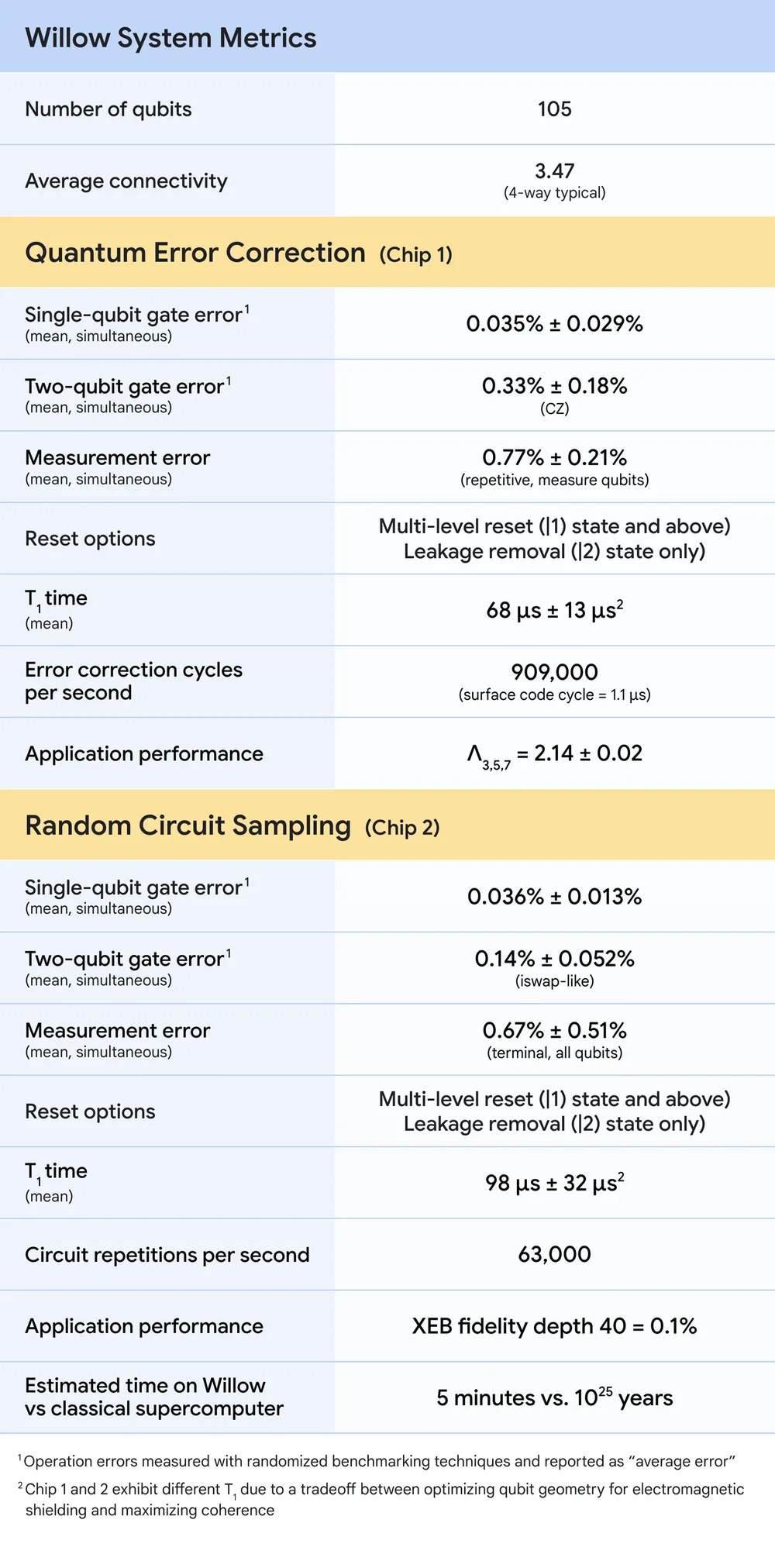
Willow: Google’s Quantum Leap Toward the Future of Computing
Quantum Leap: What Is Willow?
Google’s Willow chip isn’t just an incremental upgrade; it’s a paradigm shift. Powered by 105 qubits, it tackles one of the greatest challenges in quantum computing: errors. In classical computing, errors are rare and correctable, but quantum computers—built on the delicate principles of quantum mechanics—are inherently unstable. The more qubits you add, the harder it is to keep errors at bay.

Willow changes the game. For the first time, scaling up qubits reduces errors exponentially. This milestone, known as “below threshold,” has been pursued for nearly 30 years. And Google nailed it. Every increase in qubit arrays—3x3, 5x5, 7x7—cut the error rate in half.
Why does this matter? Because it’s the clearest proof yet that large-scale, fault-tolerant quantum computing isn’t just a dream. It’s inevitable.
How Powerful Is Willow?
Let’s put this into perspective: using a benchmark called random circuit sampling, Willow solved a problem in under five minutes that would take the world’s fastest supercomputer, Frontier, 10 septillion years. For context, that’s over a million times longer than the age of the universe.

Willow’s performance across a number of metrics.
This isn’t just a flex. It’s evidence that quantum computing has crossed a crucial threshold—doing things no classical computer could ever hope to replicate. Think of it as entering a new dimension of computing capability, where problems that seemed impossible yesterday could be solved in minutes tomorrow.
What Does This Mean for Us?
While the full scope of quantum computing's impact remains to be seen, the Quantum AI team and its collaborators are actively exploring near-term and long-term applications across industries. Here’s what Willow’s breakthroughs could potentially mean for the world:
1. Revolutionizing Healthcare
Quantum computers can simulate drug molecules with unparalleled precision. This could help researchers design life-saving medicines faster and more efficiently, slashing the time and cost of drug discovery. Imagine curing diseases that today feel insurmountable.
2. Sustainable Industrial Chemistry
Take ammonia production—a process responsible for 2-3% of global greenhouse gas emissions. Quantum simulations could optimize this process, making it cleaner and more efficient.
3. Better Batteries, Cleaner Energy
Quantum simulations can lead to higher-performing batteries, unlocking faster-charging, longer-lasting electric vehicles. They can also optimize nuclear fusion reactor designs, potentially ushering in an era of abundant, clean energy.
4. Physics Research
Today’s quantum processors are already helping scientists explore quantum gravity, exotic phases of matter, and molecular structures. These breakthroughs could pave the way for technologies we haven’t even imagined yet—like loss-free power grids or new forms of energy storage.
Why It’s Only the Beginning
Despite its groundbreaking achievements, Willow is just one step in Google’s six-phase quantum computing roadmap. Well then, what's the ultimate goal here? The answer is a fault-tolerant quantum computer capable of solving real-world problems that classical computers can’t even scratch. We’re talking about tackling climate change, optimizing AI, and designing entirely new materials.
To get there, Google is focusing on quality, not just quantity. Willow’s state-of-the-art fabrication process ensures every component—from qubit gates to error correction systems—works harmoniously. This holistic approach is what sets Google apart in the race to quantum supremacy.
What’s Next?
The next big milestone is demonstrating a useful, beyond-classical computation—one that has real-world, commercial applications. And Google isn’t doing this alone. They’re inviting developers, researchers, and engineers to join the journey through open-source tools and resources, including a new Coursera course on quantum error correction.
Open Source Software -
Course Link -

Arnav Jaitly
Hi, I am Arnav! If you liked this article, do consider leaving a comment below as it motivates me to publish more helpful content like this!
Leave a Comment
1 Comments
Related Posts
